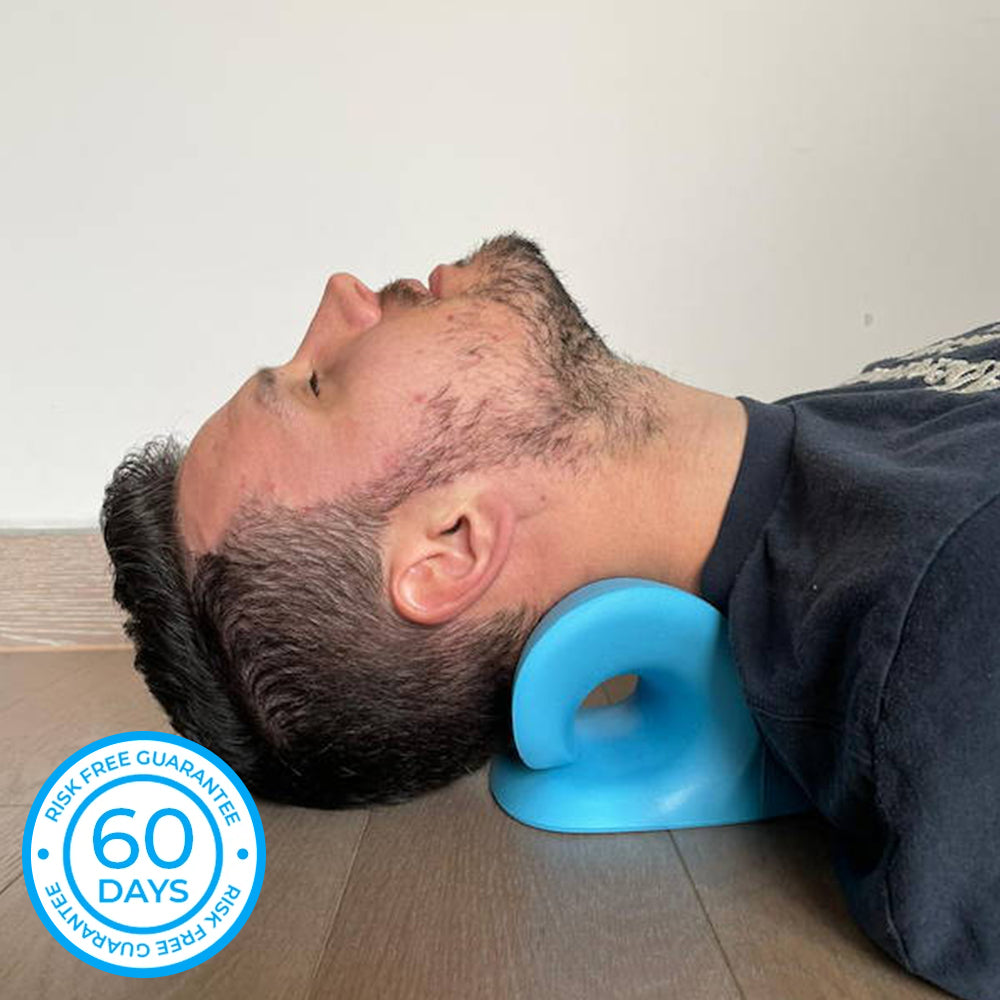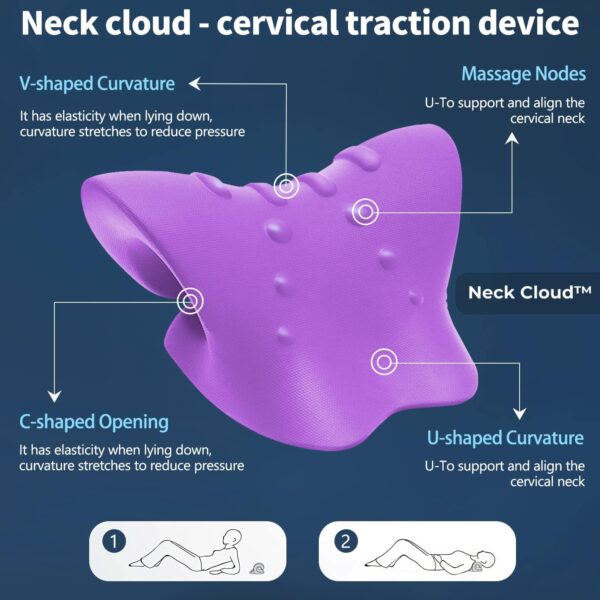Neck Cloud Testimonial: A Revolutionary Tool for Neck and Spinal Column Wellness
The Impact of Stress And Anxiety on Neck Pain: Approaches for Decreasing Stress and Discomfort
In today's busy globe, it's no key that stress and anxiety has become a widespread factor in the start and exacerbation of neck discomfort. Join us on a journey to unwind the influence of stress on neck pain and find efficient means to relieve discomfort and enhance general top quality of life.
Recognizing Stress-Related Neck Discomfort
Neck pain is a common problem that can commonly be connected to stress and anxiety. Stress-related neck pain can show up as tension, tightness, or pain in the neck and shoulder area. The connection between tension and neck discomfort exists in the body's physical response to tension, which can lead to muscle mass stress and rigidity in the neck muscle mass. Chronic tension can bring about persistent neck pain and aggravate status quo like cervical spondylosis or muscle mass pressures.

Identifying Common Tension Locations
Regularly experienced by individuals under stress, stress areas in the body can provide beneficial understandings into the physical indications of mental stress. One common tension area is the neck, where stress often manifests physically. Stress migraines, rigid neck muscles, and restricted variety of motion prevail symptoms of stress-related neck stress. The shoulders are one more typical location where stress builds up. Stress can trigger the muscular tissues in the shoulders to tighten, leading to pain and discomfort. Additionally, the upper back is susceptible to stress build-up, specifically in individuals that experience persistent tension. Poor stance and extended sitting can exacerbate stress in this field. The jaw is also a typical area for stress-related tension, as many people squeeze their jaw or grind their teeth when stressed. Recognizing these typical stress areas can assist individuals recognize the physical indicators of tension and take actions to address them before they rise into persistent discomfort or pain.
Applying Leisure Strategies
Leisure techniques are useful tools for minimizing neck discomfort caused by anxiety. Additionally, activities like yoga exercise and tai chi incorporate both physical motion and leisure, making them reliable practices for minimizing stress and neck pain. By including these relaxation methods into your everyday routine, you can aid handle stress and anxiety levels, lower stress in the neck, and minimize pain linked with click now stress-induced neck discomfort.
Integrating Self-Care Practices
Incorporating self-care techniques is important for maintaining general wellness and handling stress-related neck discomfort effectively. Engaging in routine physical task, such as gentle extending workouts or yoga, can help ease stress in the neck and shoulders. Practicing great useful site stance throughout the day and taking frequent breaks from extended resting or screen time can additionally prevent pressure on the neck muscles.
In addition, prioritizing appropriate rest and establishing a consistent sleep regimen can add substantially to reducing stress and anxiety degrees and promoting relaxation. Creating a calming bedtime routine, such as checking out a publication or taking a cozy bath, can assist prepare the mind and body for restful sleep. In addition, keeping a balanced diet rich in nutrients and staying hydrated can support overall health and wellness and decrease inflammation that may exacerbate neck pain.
Incorporating mindfulness practices, such as deep breathing exercises or meditation, can help handle anxiety and promote leisure. Requiring time for oneself, participating in leisure activities, and establishing limits to safeguard individual time are likewise important facets of self-care that can contribute to reducing anxiety and relieving neck discomfort.
Seeking Specialist Assistance
How can people efficiently resolve consistent neck pain that is influencing their everyday life and health? Seeking professional aid can be a critical action in managing and easing neck pain. Consulting with medical care experts such as chiropractics physician, physiotherapists, or orthopedic specialists can provide beneficial insights and personalized therapy plans. These specialists can carry out complete assessments to detect the underlying root causes of neck discomfort and suggest appropriate treatments.
Chiropractors focus on back manipulation methods to boost alignment and lower tension in the neck area. Physiotherapists provide targeted stretches and exercises to reinforce muscle mass, boost flexibility, and boost overall neck useful content feature. Orthopedic experts can provide innovative clinical treatments such as injections or surgical choices for extreme cases of neck pain.
Conclusion

Stress-related neck discomfort can manifest as tension, rigidity, or pain in the neck and shoulder area. The connection between stress and anxiety and neck discomfort lies in the body's physical reaction to stress and anxiety, which can result in muscle mass stress and tightness in the neck muscle mass. Stress frustrations, stiff neck muscular tissues, and restricted range of movement are usual symptoms of stress-related neck tension. By including these leisure techniques into your everyday regimen, you can aid manage tension levels, reduce tension in the neck, and ease pain linked with stress-induced neck discomfort.
